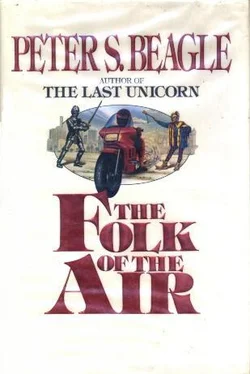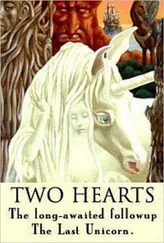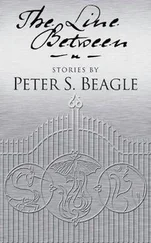“I’m sorry,” he said. “It was meant to be a compliment, actually. You were always so aware of loss—you were missing things before it was fashionable, before whales and old people were in. I remember, you used to know whenever anything anywhere got paved over, or torn down, or became extinct. It wasn’t nostalgia, it was mourning. You still doing that?”
Farrell shrugged. “Sort of. Sort of not. I’m getting a little old to go around keeping track of my defeats.”
“It’s an honorable calling.” They sat by the pool, talking quietly, while jets of water from the inlets thumped against their hanging legs and lights fluttered in the Avicenna hills beyond the small wired windows. Ben asked if Farrell had been meeting old acquaintances, and Farrell said, “It’s a little scary. Half the people I know are still striding around Parnell, taking anthropology classes and making the parties. They hang in different coffeehouses now, but it’s the same faces. I can’t go into that new place, the South Forty, without running into somebody who wants me to come over to the house and play Fishing Blues .”
Ben nodded. “People hang on in Avicenna. This town is a La Brea tar pit for academic types.”
“I’m hip. They come out to do graduate work and wind up shoplifting. Dealing. All the cabdrivers came out on the G.I. Bill in 1961 and flunked their orals.”
“Of course,” Ben said softly, “there’s a point in your life when everyone starts to look familiar.” Farrell looked sideways and saw him scratching and rubbing at the base of his throat—another habit of the bored, kindly, sardonic boy strayed from nowhere to slump next to him in assembly. Ben said, “I wish I’d flunked my orals.”
“You can’t fail tests,” Farrell said. “You don’t know how.”
“Didn’t know why, more like it.” Ben was leaning forward, writing what looked like Sia over and over in the water with his toes.
Farrell said, “You like it here?”
Ben did not turn. “I’m a hotshot here, Joe. They work my ass off, but they know who I am. They’ll give me tenure next year, and associate, and let me do about what I want to do. Because I mean business. Because I’m a goddamn firstclass scholar of Icelandic literature, and there are maybe three others this side of the Rockies. I am aces around here.”
“Then why are we both talking funny?”
Ben gripped the side of the pool, staring down between his legs into the water. He said without expression, “I like two of my undergraduate students and one graduate. No, all right, two graduates. I’m starting to cheat on my office hours, and I’ve been getting into fights with people at committee meetings, when I show up. There’s this book I’m supposed to be writing, about style and diction in the later skaldic poetry. There is one hell of a big feud going on in the department, and most of the time I can’t remember whose side I’m supposed to be on. Sometimes I can, and that’s worse. It’s really not too much fun.”
“Well, it’ll probably be a lot better for you next year.” Farrell tried conscientiously to say something useful. “As you said, once you’ve got tenure, they’ll let you alone. Let you write your own ticket, pretty much.”
“A ticket to where?” The familiar sweet, shrewd gaze returned to Farrell, and he saw that the thin scar under Ben’s eye was standing up, seeming to stir like a muscle. Ben said, “I don’t think it is going to get any better. The boredom I could handle, but I hate feeling so contemptuous. I hate feeling myself getting mean. Joe, it’s just not what I had in mind.”
“I didn’t know,” Farrell said. “We never talked much about that part of your life, you never wrote how things were. I thought it was what you wanted, committees and all.”
“Oh, wanting’s different.” Ben gripped Farrell’s forearm, not hard, but the urgency in the touch set the bones cringing together. “I did get what I wanted, and I probably even still want it, for all I know these days. But it isn’t what I had in mind.” He peered at Farrell, squinting with the need to make him see, as though he were tutoring him in chemistry once again. “It isn’t what I had in mind.”
A door yawped and sighed, and they both turned to see a tall, naked, white-haired man enter and stand peering at them down the pool. He had a massive, grainy face that reminded Farrell of the bowls of stone grapes and bananas in the gardens of Scotia Street. Ben said abruptly, “Go do a couple of laps, I want to watch you.”
The white-haired man cried out in the thickest Scots accent that Farrell had ever heard, “Now by the rood, ‘tis in sooth the guid laird Egil Eyvindsson of Narroway!” Farrell walked to the near end and went in. He dived too deep and came up off-balance, and it took him nearly a length to find his stroke. Each time he turned his head, he saw the whitehaired man striding toward Ben, one arm out in greeting, skidding alarmingly on the tiles, but never deigning to grab for balance, so that he progressed at an increasingly rapid lurch. For all that, a kind of overripe stateliness steamed about him, and he bawled nobly in a voice like wooden wheels on a wet wooden bridge, “Egil, hail! Och, I was but seeking ye the noo! News o’ Duke Claudio!”
Farrell swam back slowly, gurgling his delight into the water. When he rose beside them, the white-haired man was beaming down at Ben, rumbling and buzzing through a strangle of glottal stops. “I had it frae the laird Morton of Shaws—aye, I ken weel ye’ll say he hath ever been but indifferently o‘ oor party—” Ben was digging at this throat again.
Farrell said, “How’d I do?” The white-haired man neither started nor turned. Ben said heavily, “You’re kicking wrong.” Then he turned to the white-haired man. “Crof, I’d like you to meet my oldest friend, Joe Farrell. Joe, Crawford Grant, Crof.”
Farrell stuck up a hand from the water, feeling a good bit like the Lady of the Lake. Crof Grant said, “Pleased to meet you, Ben’s told me a lot,” in a clear New Hampshire voice, and his handshake was firm enough; but he never saw Farrell. There was no least stir of consent to Farrell in his face, no belief in the slaty hand that it closed on anything of substance. Before that placid, smiling denial, there was a moment when Farrell trembled for his own presence.
Crof Grant turned calmly back to Ben. “Yet for that reason itself do I believe his rede that the Duke Claudio inclineth ever mair toward the Laird Seneschal’s favor—and if Claudio gaes ower, he’ll take the best of King Bohemond’s am folk wi‘ him. Aye, ye’ll scoff, Egil, but gin Claudio’s for Garth, then the war’s ower as we stand here, and ye’ll mind I said so.” There was more, but Farrell lost a lot of it after that.
Elbows hooked over the edge of the pool, Farrell hung in the water, fascinated and amused now that the blandly annihilating stare was turned from him. But Ben spoke severely across the serene babble, demanding, “Where’d you pick up that thing of kicking from the shins on down? Took me two years to make you get your whole leg into it, and now you just lie there and flap your ankles. Try it again, Joe, that’s ridiculous.”
Grant had never stopped talking. Farrell began to swim slowly along the side of the pool, trying to concentrate on nothing but moving his legs from the hip and on feeling the thrust in his shoulders. Crof Grant’s paperback medievalese bumbled on in the tiny waves under his cheek and in the wet tiles.
“Aye, Bohemond’s no longer for the crown than the Whalemas Tourney, but what of that?” And again, chuckling thickly, “Egil, lad, ye’re a bonny hand wi‘ maul or longaxe, but the craft o’ the court still scapes ye.” And twice Farrell heard the white-haired man say clearly, “‘Tis the wee lassie they all fear. I’ll tell ye straight, I fear the girl masel’, each day the mair.” He could not catch what Ben said in reply.
Читать дальше












